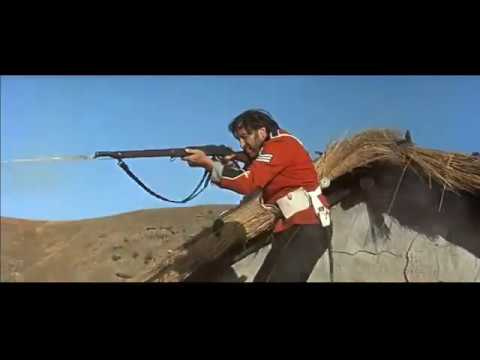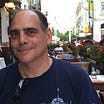
I am a miner at heart, mining our movie memories, unearthing forgotten popular culture that ought not to be forgotten. Right now, I am digging into the West’s deep masculine past in our film history, a past that our contemporaries would love to bury.
Today, a defining feature of woke is declaring masculinity as toxic as greenhouse gasses. Our real movie history, however, believed that real men were anything but. Strong male characters were meant to be ennobling and uplifting, teaching us to reach for our better selves. Let’s revisit one motherload of forgotten iconic men on the silver screen.
The postwar British film industry was a shadow of its pre-war glory. Still, British leading men and character actors remained in demand. Of course, any film buff could spin off a list of memorable British actors like Laurence Olivier in Spartacus (1960) or Richard Burton or Sean Connery who stared as 007 in the first Bond films. The screen, however, was rich with great talents who faded with the decline of British dominance in our popular culture, but who epitomized the values and character that brought Britain to greatness and taught much of the free world how to man up. Here are my favorite five.
Stanley Baker (1928-1976). Almost all these actors had working class backgrounds and military service. The Welsh-born Stanley Baker was from a coal mining family and did national service in the Army after World War II. He had a long career in film and television, in part because of the British film industry nose-dived in the 1960s and he had to keep working to pay the bills. He can be spotted in any number of pictures, but there is no debate that his bright shinning moment was as the intrepid lieutenant leading the defense of an overwhelmed garrison during the Zulu Wars. Zulu (1964) was a box office hit. Baker’s co-star Michael Caine became famous and got tons of work. Baker sadly never dominated the leading man market. Baker claimed he was originally offered the role of James Bond and turned it down. Too bad he would have been a badass Bond.
Nigel Davenport (1928-2013). Stanley Baker was also in another great adventure film, The Sands of the Kalahari (1965) along with another terrific forgotten talent, Nigel Davenport. Davenport’s father was a railway engineer, but Nigel elected to study philosophy at university and after a tour of national military service took up acting. He was a journeyman actor who played every kind of role from a policeman to Ebenezer Scrooge. He even voiced the computer Hal in 2001: A Space Odyssey (1968), but the director thought the British accent was too distracting and Davenport missed a chance to be the most famous mad computer in movie history. My favorite role is Davenport’s portrayal as a father fighting for his family in the underrated and long forgotten science fiction post-apocalyptic thriller No Blade of Grass (1970).
Anthony Quayle (1913-1989). Quayle was a British army officer during World War II. Classically trained in the theater, he was ubiquitous in films for decades. A forgotten, but classic example of stern British character is his portrayal as the courageous naval commander in The Battle of Platte River (1956). This World War II film starts slow. I mean really slow, but stick with it, the battle scenes in the second half of the film are worth it. Watch closely for another stalworth character actor, Bernard Lee, who also played the original M in the James Bond films.
Dirk Bogarde (1921-1999). Raised in a rough neighborhood in north London and working-class Glasgow, he served in the army during World War II. He started in theater, moved to film acting and later in his career moved to independent film making abandoning his “heart-throb image and chose roles that challenged received morality and that pushed the scope of cinema.” Still classic Bogarde was his portrayal of the commander leading the airborne invasion in A Bridge Too Far (1977), a film jam-packed with British actors including former James Bond spy-Sean Connery.
Richard Todd (1919-2009). Todd spent his childhood in India. His father was an Army officer. Todd was a World War II veteran. After the war, he was unsettled on a career, but a friend suggested he try out with an acting troupe. He made his first film appearance in 1949, making many films in Britain and America, before his career went into decline. Still he appeared in movies into the 1980s. In 1962, he was in a blockbuster film about the D-Day invasion, The Longest Day. He played the airborne commander John Howard. Todd was well prepared for this role. He was a paratrooper in the D-Day invasion playing battles on film that he fought in real life.
All these men were the kind of men that kids went to the theater to watch and learn from. They saw on the screen dignity, character, sacrifice, and courage. They saw what real men did when tough things needed to be done. The woke world is sadder for forgetting the kinds of people that gave them the freedoms they enjoy today.









I have seen these two films :" The longest day" and" A bridge to far".Very impresive.I will watch these three as well.I believe that you are great connoisseur of Art and Film.Thank you !
Britain had a great influence on my life.